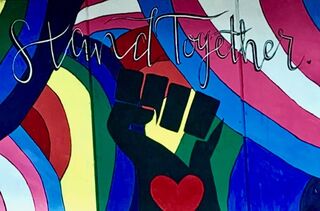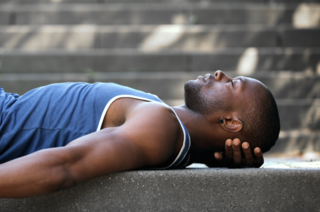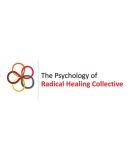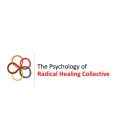Health
Radically Reimagining Community Safety
Transforming policing and investing in collective wellness.
Posted October 2, 2020

By Bryana H. French, Helen A. Neville, Grace A. Chen, Della V. Mosley, Jioni A. Lewis, Nayeli Y. Chavez-Dueñas, and Hector Y. Adames.
Seasons of pain, unnecessary losses, and racial terror are ongoing for Black, Indigenous, or People of Color (BIPOC). In the spring and summer of 2020 alone, we saw Breonna Taylor, Tony McDade, George Floyd, Jacob Blake, Miguel Vega, Andres Guardado, Priscilla Slater, and many more BIPOC brutalized by police officers who take an oath to “never betray the public trust. . . always maintain the highest ethical standards and uphold the values of the community.”
Justice is not served when police brutality terrorizes BIPOC communities, such as in the case of the botched no-knock raid on Breonna Taylor’s apartment; the officers who killed Breonna Taylor were not charged with her murder, and only one was charged with wanton endangerment for the risk to her neighbors. State-sanctioned violence with little accountability makes it clear that we need a new season for BIPOC survival — one of radical change.
There have been countless calls for change by BIPOC communities across the country to reimagine policing. These calls acknowledge that simply reforming the police has led to limited change for BIPOC communities. We realize this is a controversial topic. You may ask yourself: “If we do not have a police department, who will keep us safe?” As psychologists, it is imperative that we are informed about the critical debates around reimagining policing given the empirical evidence that policing and incarceration negatively influence the health and wellbeing of our BIPOC communities.
Community Wellness as a Form of Radical Healing
Working together to envision and create a society where BIPOC can experience a sense of safety in our homes and communities can be healing. A Psychology of Radical Healing approach includes envisioning community wellness as the avenue to safety for BIPOC communities, as opposed to policing and criminalization. As psychologists, we provide some starting points to consider.
1. Acknowledge past harm caused by policing BIPOC communities.
- Policing in the U.S. is rooted in a history of violence and terror against BIPOC. Since their inception, police forces, including Immigration and Customs Enforcement (ICE), have been used as slave patrols, to control indigenous communities, to criminalize BIPOC, protect the interests of the ruling class, and exert power and brutality over the marginalized. They encouraged union-busting, hyper surveilled BIPOC youth in schools, committed unlawful raids on Lesbian, Gay, Bisexual, Transgender, and Queer (LGBTQ) friendly businesses, exploited (then arrested) sex workers, separated families, and caged young children as young as four months old.
- The trauma and fear of policing is palpable in BIPOC communities with the increased militarization of policing. Being exposed to racial violence impacts our collective mental health, even if we are not directly targeted.
- Over decades, funds have been divested from social institutions and programs designed to promote wellness (e.g., schools, community health centers) and reallocated into building militarized police forces, prisons, and immigration detention centers with little benefit to safety for BIPOC communities. During the summer of 2020, the actual military was being used on citizens during racial uprisings.
2. Shift funding to social services and institutions that promote wellness.
- In agreement with the Movement for Black Lives (M4BL) and their proposed BREATHE Act, we call for investment in community services such as housing, mental health services, education, rape crisis services, public health departments, and employment opportunities. Such investments necessitate a reallocation of money from carceral policing to community safety, believing that when people have what they need, crime levels will decrease as a result.
- An August 2020 poll by NPR showed that the majority of BIPOC people interviewed agreed with redirecting money from police departments and into social services. Congresswoman Alexandria Ocasio-Cortez illuminated the ways defunded police departments are already in existence in suburban neighborhoods.
3. Create opportunities to reimagine community-based safety.
- Members of BIPOC communities have substantially less trust in police officers compared to White people and they often do not turn to police officers to keep them safe. Police Departments are overwhelmingly funded and yet we still saw increases in gun violence across cities this summer of 2020 amidst the COVID-19 pandemic, housing insecurity, and economic instability. This challenges the notion that the police keep communities safe.
- Activist Mariame Kaba described how community safety can thrive by being in better relationships with our neighbors. BIPOC communities have been engaging in their own healing and safety mechanisms for centuries. Consider Indigenous peacemaking practices that restorative and transformative justice are based on; transformative justice is a political movement created by and for BIPOC communities that believes in a collective responsibility to violence and community accountability.
4. Engage behavioral health professionals in safety.
- Earlier this year, Daniel Prude died of asphyxiation in police custody. Similar to a substantial number of BIPOC people killed by the police, Mr. Prude was experiencing a mental health crisis. Changes in legislation are needed so that behavioral health professionals have the authority to intervene in psychiatric emergencies instead of relying primarily on police who have limited training in managing psychiatric crises. The Cahoots system in Eugene, Oregon is one model of social services dispatched to mental health crises instead of police officers.
- Many subfields of psychology, such as counseling, community, and liberation psychology, are well-positioned to support radical healing from police trauma and humanize people in pain, as opposed to criminalizing them. For example, Varghese and colleagues highlighted ways that counseling psychologists can intervene in the criminal (in)justice system. Fine and her colleagues’ community-based participatory research (CBPR) played a critical role in documenting New York City’s Stop and Frisk injustices.
- However, psychology, and other mental health fields, have their own myths of White supremacy and scientific racism to contend with (see the work of Robert Guthrie). So any shift to engage behavioral health professionals in crisis response will require a liberatory, decolonized, and culturally affirming psychological practice.
- Therefore, better support for BIPOC cultural wellness models is needed to scale up culturally congruent approaches and practitioners. Some examples are the Association of Black Psychologist’s Emotional Emancipation Circles; Healing Justice initiatives, where wellness practitioners help heal the trauma within movement spaces for better and more holistic justice work; and using Indigenous healing traditions and practices.

Radically Imagining Safe Communities
We believe that radical healing requires that we reimagine what safety and wellness mean for BIPOC communities, envisioning a world filled with dignity, respect, and justice for BIPOC folx. It requires having a living wage, investment in public health, affordable housing, environmental justice, and prioritizing people over profits. With critical awareness and imagining a future without mass incarceration and the prison industrial complex, we can work toward radical healing now by divesting from the police and investing in community wellness. As psychologists, we can play a role in creating a more humane and relational practice of justice and safety. BIPOC liberation depends on it!
References
Alang, S., McAlpine, D., McCreedy, E., & Hardeman, R. (2017). Police Brutality and Black Health: Setting the Agenda for Public Health Scholars. American journal of public health, 107(5), 662–665. https://doi.org/10.2105/AJPH.2017.303691
Bor, J., Venkataramani, A. S., Williams, D. R., & Tsai, A. C. (2018). Police killings and their spillover effects on the mental health of black Americans: a population-based, quasi-experimental study. Lancet (London, England), 392(10144), 302-310. https://doi.org/10.1016/S0140-6736(18)31130-
French, B. H., Lewis, J. A., Mosley, D. V., Adames, H. Y., Chavez-Dueñas, N. Y., Chen, G. A., & Neville, H. A. (2020). Toward a Psychological Framework of Radical Healing in Communities of Color. The Counseling Psychologist, 48(1), 14–46. https://doi.org/10.1177/0011000019843506
Guthrie, R. V. (2004). Even the rat was white: A historical view of psychology (2nd ed.). Pearson Education.
Stoudt, Brett & Jay, John & Fox, Madeline. (2011). Growing Up Policed in the Age of Aggressive Policing Policies. New York Law School Law Rev. 56.
Stringer, H. (2018, February). The healing power of heritage. Monitor on Psychology, 49(2). http://www.apa.org/monitor/2018/02/cover-healing-heritage
Varghese, F. P., Israel, T., Seymour, G., Becker Herbst, R., Suarez, L. G., & Hargons, C. (2019). Injustice in the Justice System: Reforming Inequities for True “Justice for All.” The Counseling Psychologist, 47(5), 682–740. https://doi.org/10.1177/0011000019892329


